Spain's new prime minister has ordered authorities to allow a rescue ship carrying 629 migrants to dock in the eastern port of Valenica after the boat was refused by Italy and Malta.
A statement sent Monday by Prime Minister Pedro Sanchez's office says "it is our duty to avoid a humanitarian catastrophe and offer a secure port for these people."
Amid the political dispute, The Aquarius, a rescue ship belonging to the SOS Mediterraneee charity, has been stuck in the Mediterranean Sea with its passengers, including 123 unaccompanied minors and seven pregnant women. Medical workers say food onboard the ship is going to run out Monday night.
After Spain announced it would take in the migrants, Malta said that it will be offering supplies to the vessel before it continues on its way to Valencia.
The photo above shows AFM personnel delivering food and water to the migrants on board the Aquarius.
The government statement said Spain wanted to comply with its international responsibilities on humanitarian crises.
In reaction, Prime Minister Joseph Muscat welcomed Spain's decision. He said that the EU must come together to see that similar incidents do not happen again. In his tweet, Muscat said once again that Italy had broken international rules. Malta will be providing fresh supplies to the vessel.
The mayors of Barcelona and Valencia in Spain both offered their ports to receive the rescue ship.
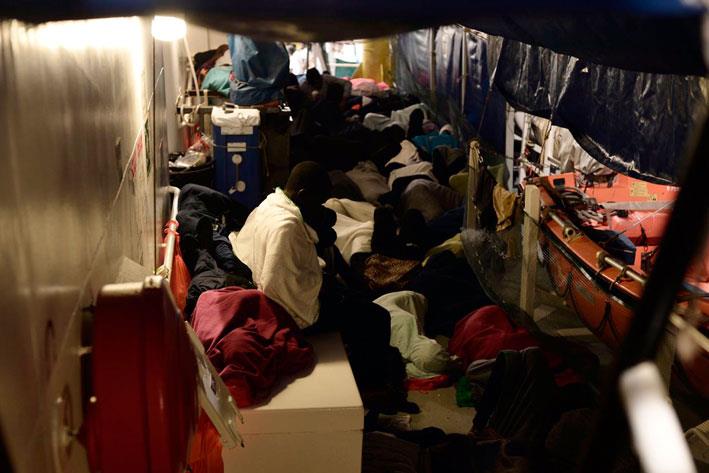
Barcelona Mayor Ada Colau has offered her city's help while criticizing other Europeans, saying the crisis over the Aquarius "puts in question" the unity of the European Union.
She says "the duty of a democratic government is not to look away" in a humanitarian crisis.
Earlier Monday, OPM chief of communications Kurt Farrugia said that Malta had not received any requests, on medical grounds, to evacuate migrants from the Aquarius.
Speaking to this newsroom at circa 1.45pm, OPM chief of communications Kurt Farrugia said that as stated by Prime Minister Joseph Muscat to Italian PM Giuseppe Conte, Malta will rescue those migrants who require medical assistance.
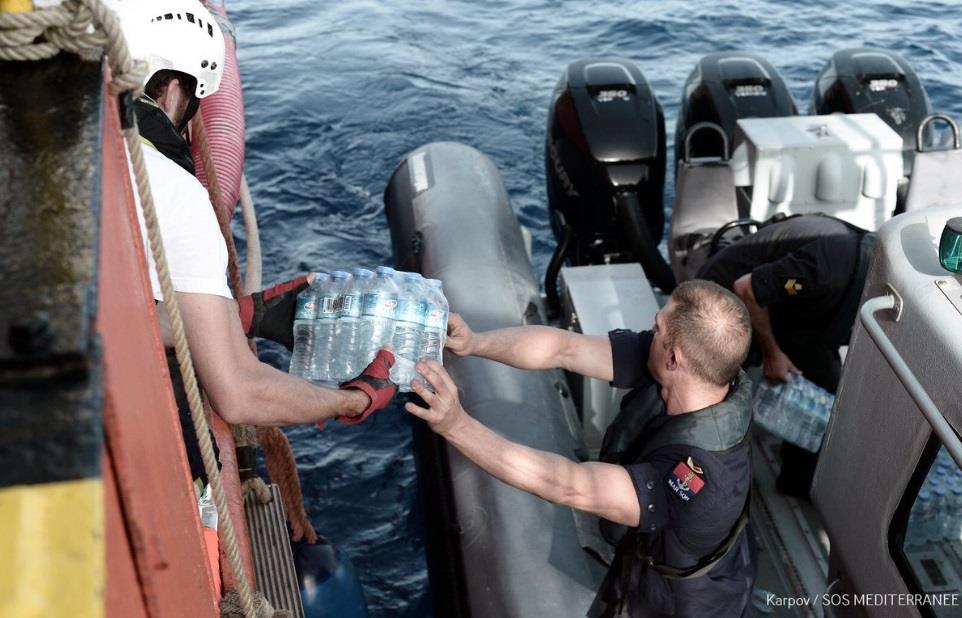
But no such request had been made as yet. If the Aquarius makes such a request, Malta will respond as it is legally required to do in these circumstances. We always do medevacs when needed, Farrugia said.
The development comes ater 48 hours in which both Malta and Italy refused to let a rescue ship with 629 people aboard dock in their ports, leaving the migrants at sea as a diplomatic standoff escalated under Italy's new anti-immigrant government.
The government of Malta, on Sunday, expressed concern that Italy is going against international rules in the way it is tackling the issue regarding stranded migrants.

Earlier Monday, the European Union appealed to Italy and Malta to quickly work out — for humanitarian reasons — where a ship carrying more than 600 rescued migrants should dock.
European Commission spokesman Margaritis Schinas said Monday that "the priority of both the Italian and Maltese authorities should be ensuring these people receive the care they need."
He said: "We call on all involved to contribute to a swift resolution so that the people on board the Aquarius vessel may be safely disembarked as soon as possible."
The Commission says the legal circumstances dictating who should accept the migrants is "anything but clear," however Brussels says both parties are obliged to cooperate to resolve the matter.
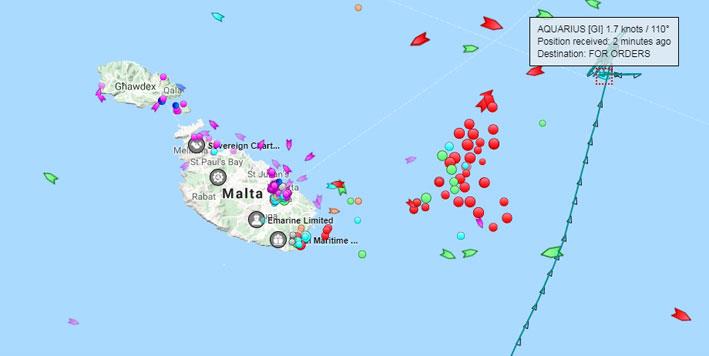
Marco Bertotto of Doctors Without Borders also told Italian state TV on Monday that some of the 629 migrants aboard the Aquarius have water in their lungs after falling into the Mediterranean Sea from smugglers' boats.
Others have burns from boat fuel mixed with seawater or are suffering from hypothermia.
In a statement late on Sunday, the government said Prime Minister Joseph Muscat, and the Prime Minister of Italy, Giuseppe Conte, had a telephone conversation on the developing situation of the vessel Aquarius.
Prime Minister Muscat reiterated that Malta is acting in full conformity with its international obligations. As such Malta will not take the said vessel in its ports, the statement said.
“Nevertheless, without prejudice to its position, and in conformity with its policy throughout the past years, Malta has always been willing, where possible, to carry out emergency medical evacuations of persons requiring urgent medical care for humanitarian reasons.
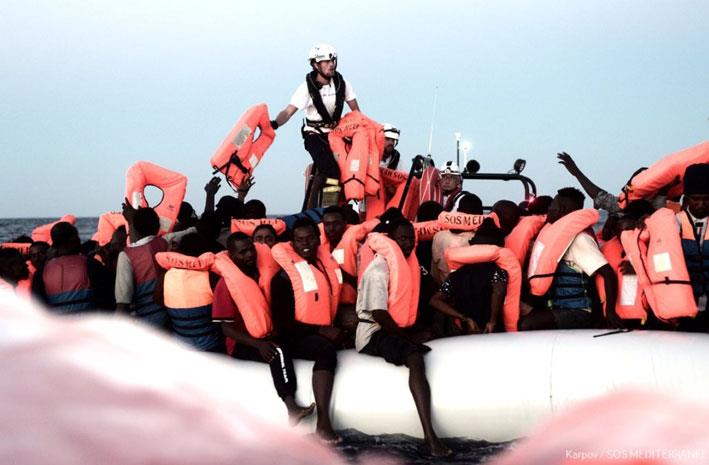
“In the meantime, the Maltese government is concerned at the Italian authorities’ directions being given to Aquarius on the high seas which go against international rules, and risk creating a dangerous situation for all those involved.”
The Italian government is insisting that Malta takes in 629 migrants that were rescued near Libya on Sunday morning, saying that its ports were closed.
In another official statement, issued on Sunday afternoon the Maltese government said: "The rescue by NGO boat Aquarius was conducted in the Libyan Search and Rescue region and coordinated by Rescue Coordination Centre (RCC) Rome. RCC Malta in this case is neither the competent, nor the coordinating authority."
But Italy refused to take in the migrants. "Enough!" said Italian Interior Minister Matteo Salvini. "Saving lives is a duty, but transforming Italy into an enormous refugee camp isn't."
He tweeted: #Chiudiamoiporti. "We're closing the ports."
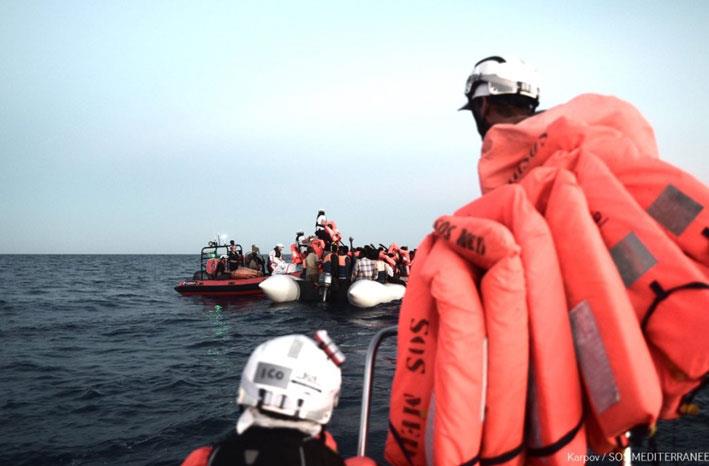
The migrants had been rescued during a series of operations Saturday by Italian maritime ships, cargo vessels and the Aquarius itself. All passengers were offloaded to the Aquarius to be taken to land.
Doctors Without Borders, which has staff aboard the Aquarius, tweeted a video of some of the women aboard the ship praying Monday morning and said they were unaware of the diplomatic drama being waged on land over their fate.
"Thank you Lord," the women sang. The group said it "urgently requests a swift resolution and a designated port of safety."
The standoff marked the first inevitable clash over migrant rescues with League leader Salvini, now running Italy's interior ministry. Salvini campaigned on an anti-immigrant platform that also included a vow to expel hundreds of thousands of migrants already in Italy, even though experts doubt such mass deportations are feasible or financially viable.
Malta, for its part, has consistently refused to take in migrants, citing its small size and limited capacities.
The island nation has progressively reduced the number of migrants it has taken in over the past decade, from a high of 2,775 in 2008 to just 23 last year, according to U.N. statistics.
Salvini pointed to Malta's unwillingness in accusing Europe as a whole of leaving Italy on its own to deal with the refugee crisis. He noted that other European countries are very much involved in current rescue operations in the Mediterranean — including a German aid group currently off Libya — but no country is stepping up to actually take in the migrants.

"Italy has stopped bowing our heads and obeying," Salvini said in a Facebook post. "This time we say no."
The standoff is actually the third in recent weeks, after the outgoing government of Premier Paolo Gentiloni refused to let humanitarian aid groups dock in Italian ports until the ships' flag nations had formally requested permission. Those incidents delayed the migrants' arrival, but they ultimately made it to Italy.
In another development before Spain accepted to take in the migrants, the UNHCR, the UN Refugee Agency appealed to concerned governments to allow the immediate disembarkation of the migrants aboard the Aquarius.
“There is an urgent humanitarian imperative here,” said Vincent Cochetel, UNHCR’s Special Envoy for the Central Mediterranean. “People are in distress, are running out of provisions and need help quickly. Broader issues such as who has responsibility and how these responsibilities can best be shared between States should be looked at later.”
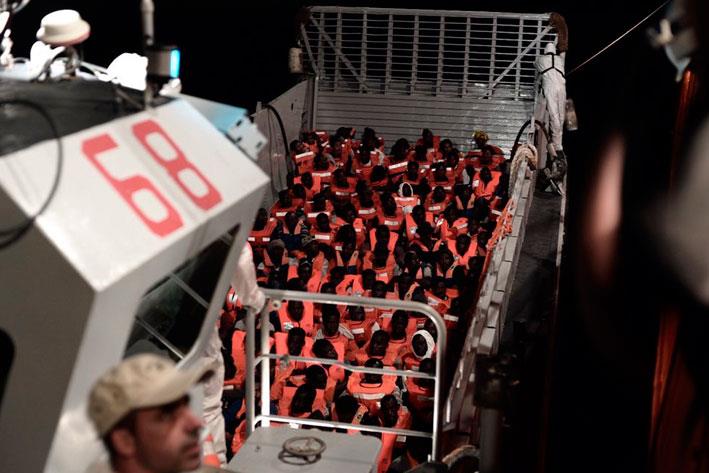
“Fundamentally, the principle of rescue at sea must not be put into doubt through incidents like this. Other governments must act to support countries dealing with sea arrivals. This could include a predictable mechanism across the region for disembarkation, based on good cooperation amongst states and other relevant actors,” Cochetel added.
Italy has seen some 13,706 sea arrivals so far in 2018, a significant decrease from recent years.”
Additional reporting Associated Press, Photo SOS Mediterreanee